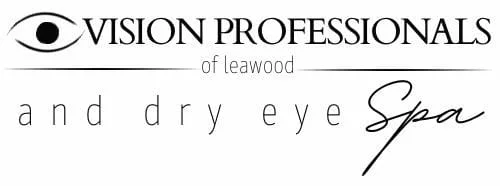Does Eyesight Change with Age

- posted: Apr. 14, 2023
As we age, our vision naturally changes. Many older adults find that their vision is not as clear as it used to be. At Vision Professionals of Leawood in Leawood, KS, we specialize in providing quality eye care for patients of all ages. In this blog, we'll discuss how vision changes with age and provide helpful tips to help preserve your sight.
At What Age Does Vision Begin to Decline?
Common age-related vision changes usually don't occur until after the mid to late 40s. But it’s important to get regular eye exams at any age, especially if you have a family history of eye diseases or plan to drive for many more years. An eye exam can detect and diagnose many common eyesight issues before they become serious problems. Early detection is key to preserving your vision, so see a professional optometrist for regular checkups.
Common Age-Related Vision Changes
There are two common age-related vision changes that can happen as you get older. These are Presbyopia and cataracts. When you have presbyopia, your eyes gradually lose the ability to focus on objects up close. This usually starts around the mid to late 40s. However, it becomes more noticeable over time. It’s often corrected with reading glasses at a professional optometry clinic.
Cataracts are a clouding of the lens in your eye that can cause blurry vision, difficulty distinguishing colors, or seeing halos around lights. This condition usually starts after age 50 and progresses gradually over time. An optometrist can treat cataracts surgically by removing the cloudy lens and replacing it with an artificial lens.
Major Age-Related Eye Diseases
There are two very common age-related eye diseases. These are macular degeneration and glaucoma. Macular degeneration is a major cause of vision loss among people over the age of 60. It's caused by damage to the macula, which is a small area in the center of the retina at the back of your eye. Symptoms may include blurred vision and a dark or empty spot in the center of your field of view.
Glaucoma is an eye disease caused by increased pressure inside the eye. It can lead to optic nerve damage, which can cause vision loss. The most common symptom of glaucoma is difficulty seeing while looking out of the side (peripheral) vision. In this case, you must visit an optometry clinic and see a professional eye doctor for both issues before they get worse.
Tips for Preserving Your Vision as You Age
There are several ways to protect your eyesight as you age, including:
• Getting regular comprehensive eye exams
• Wearing sunglasses and hats with wide brims when outdoors to reduce UV exposure
• Eating a healthy diet rich in vitamins and minerals
• Exercising regularly to maintain overall health
• Quitting smoking, as it can contribute to the development of certain eye diseases
Schedule an Eye Exam With Us
At Vision Professionals of Leawood, we understand how important your vision is. We are here to help answer any questions you may have about age-related changes in your vision. If you currently need an eye doctor, call our team today at (913) 239-9446 to learn more or to schedule an appointment.

- posted: Apr. 14, 2023
As we age, our vision naturally changes. Many older adults find that their vision is not as clear as it used to be. At Vision Professionals of Leawood in Leawood, KS, we specialize in providing quality eye care for patients of all ages. In this blog, we'll discuss how vision changes with age and provide helpful tips to help preserve your sight.
At What Age Does Vision Begin to Decline?
Common age-related vision changes usually don't occur until after the mid to late 40s. But it’s important to get regular eye exams at any age, especially if you have a family history of eye diseases or plan to drive for many more years. An eye exam can detect and diagnose many common eyesight issues before they become serious problems. Early detection is key to preserving your vision, so see a professional optometrist for regular checkups.
Common Age-Related Vision Changes
There are two common age-related vision changes that can happen as you get older. These are Presbyopia and cataracts. When you have presbyopia, your eyes gradually lose the ability to focus on objects up close. This usually starts around the mid to late 40s. However, it becomes more noticeable over time. It’s often corrected with reading glasses at a professional optometry clinic.
Cataracts are a clouding of the lens in your eye that can cause blurry vision, difficulty distinguishing colors, or seeing halos around lights. This condition usually starts after age 50 and progresses gradually over time. An optometrist can treat cataracts surgically by removing the cloudy lens and replacing it with an artificial lens.
Major Age-Related Eye Diseases
There are two very common age-related eye diseases. These are macular degeneration and glaucoma. Macular degeneration is a major cause of vision loss among people over the age of 60. It's caused by damage to the macula, which is a small area in the center of the retina at the back of your eye. Symptoms may include blurred vision and a dark or empty spot in the center of your field of view.
Glaucoma is an eye disease caused by increased pressure inside the eye. It can lead to optic nerve damage, which can cause vision loss. The most common symptom of glaucoma is difficulty seeing while looking out of the side (peripheral) vision. In this case, you must visit an optometry clinic and see a professional eye doctor for both issues before they get worse.
Tips for Preserving Your Vision as You Age
There are several ways to protect your eyesight as you age, including:
• Getting regular comprehensive eye exams
• Wearing sunglasses and hats with wide brims when outdoors to reduce UV exposure
• Eating a healthy diet rich in vitamins and minerals
• Exercising regularly to maintain overall health
• Quitting smoking, as it can contribute to the development of certain eye diseases
Schedule an Eye Exam With Us
At Vision Professionals of Leawood, we understand how important your vision is. We are here to help answer any questions you may have about age-related changes in your vision. If you currently need an eye doctor, call our team today at (913) 239-9446 to learn more or to schedule an appointment.
